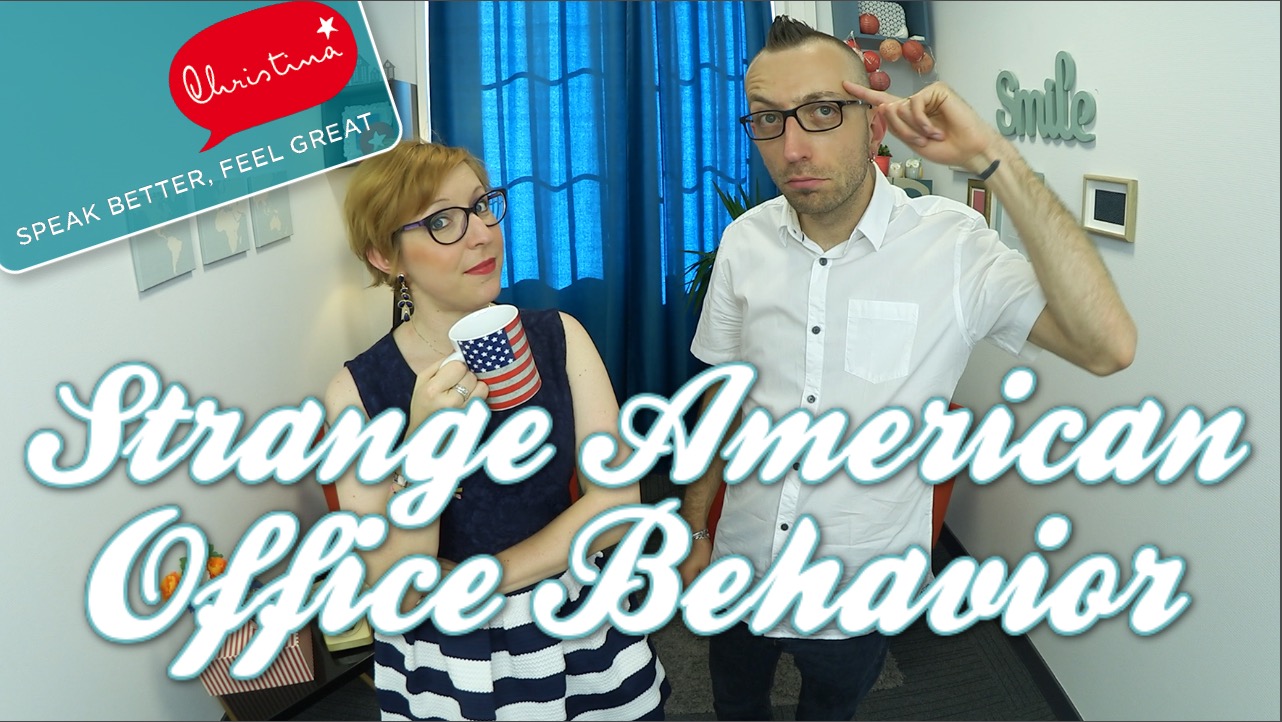
“If a Big Mac with everything on it is awesome, then how do we describe the Grand Canyon?”
Ça doit être ma citation préférée de l’épisode d’aujourd’hui.
Bonne question. Mais pourquoi les Américains disent “Awesome!!!!!!!!” tout le temps justement ? Plus largement, pourquoi les Américains exagèrent tout ?
J’avoue, je suis coupable de cette habitude typiquement américain : Placer des “awesome!”, ou “great!” ou “fantastic!” à peu près partout…
Why?
Pourquoi les Américains font ça ?
Je ne me suis jamais vraiment posée la question, pas avant que 2 membres de The SBFG Community, Céline & Christophe, m’ont dit que c’était une des choses les plus énervantes chez les Américains : La tendance à utiliser des superlatifs à toutes les sauces.
Thanks so much, Céline & Christophe, de me l’avoir fait remarquer !
En tant qu’Américaine, je sais que, quand un autre Américain exagère, c’est simplement pour montrer qu’il apprécie quelque chose. Il ne pense pas vraiment que mon idée de laisser des chatons se balader partout au bureau toute la journée pour réduire le stress de mes collègues (par exemple…) soit “Totally awesome.” Au mieux, il trouve l’idée amusante. Mais pas génial, génial.
Je connais ces codes de communication et pourquoi les Américains font ça. Mais toi ?
Comment tu peux savoir ce que ton collègue Américain pense vraiment de ta suggestion pour rattraper le temps perdu sur le projet ?
Ça peut te frustrer, car tu ne sais jamais si ton collègue pense que ton idée est juste “pas trop mal” ou vraiment exceptionnelle.
C’est encore une raison pourquoi les Américains paraissent superficiels aux yeux des Français. Vous êtes, en général, beaucoup plus réservé dans votre enthousiasme.
Alors, si ton collègue Américain pense “C’est pas trop mal”, pourquoi, bon sang, il se sent obligé de dire “It’s totally absolutely amazing!!!!!!!!!!!!!”
La réponse dans The SBFG Episode d’aujourd’hui.
J’avoue, ça peut énerver, cette façon d’abuser des superlatifs pour décrire TOUT. Mais au moins, maintenant, tu sais pourquoi les Américains font ça.
Et pourquoi pas me dire ce que TU en penses ?
What’s the most annoying thing your American colleagues do?
And because it’s always nice to end on a positive note, is there something about your American colleagues that you also admire?
J’adore lire tes réponses et répondre à tes commentaires. Alors, il ne faut surtout pas te retenir !
N’oublie pas que des milliers de Français se tourne vers The SBFG Blog pour booster leur anglais et leur carrière. La communauté s’agrandit chaque jour ! Partage ton histoire avec nous ! On a hâte de te lire.
Merci beaucoup d’être là chaque mardi. You totally rock! (Et c’est sincère, tu investis en toi-même et c’est tellement important !)
Have a fantastic week in English,
–Christina
P.S. Tu as un ami qui est à tes yeux, totally amazing? Partage SBFG avec lui ou elle !
More good stuff...
Clique l'image pour regarder l'épisode. C'est magique !








This article is absolutely amazing !!! .You are the best commentator I have ever read !!
Thanks Clauvel, you’ve mastered the American art of exaggerating 🙂
Christina,
You are absolutely great .
Your English is excellent.. It could not be better .
Every word is pronounced exactly as it has to be pronounced .
You are certainly the best English teacher in France .
Every French following your tuition is committed to speak English as a born American .
Congratulations
R C
Thanks so very much for those compliments! I’m not sure I’m the best English teacher in France, as I know lots of very good, very qualified teachers in lots of different places in France! But I hope that I can help as many French people as possible–that’s why I started the YouTube channel: to reach as many people as possible and help them improve their English and get better jobs! Boost your English and boost your career, as I always say 😉
Thanks so much for the kind words–you made my day!
This exaggeration is one of my pet peeves. Especially when my husband tells tall tales about me. While I am a decent pianist, I am no Evgeny Kissin. Yet he kept telling anyone who wanted to listen that I am a “concert pianist.” I never said it, I certainly didn’t want people to think I am and then hear me play! It was so embarrassing all around. He does the same with any kind of skill people have, just blowing it out of proportion. Who even knows what anyone knows/ is capable of doing? It makes it difficult to tell. I hear of Americans “speaking French” all the time… until I hear them speak! There is no common standard that could give me an idea of what the words mean. The result is that I will only judge for myself and not trust an American’s judgment anymore.
Thanks for sharing your own experience, Nathalie! And I can understand your frustration: Your husband tells people you’re a fantastic pianist, and so they expect something truly fantastic, and then you feel like you can’t live up to their expectations (even though I’m sure you can play very well 🙂
Are the people your husband talks to American? If so, it can help if you remember that they understand that this exaggeration is just normal. And even if you’re not a concert pianist, they’ll more likely focus on the talent that you do have and what you are able to do at your level, which is better than what many others can do.
It’s like your example of Americans speaking French: to your French ears and your experience as someone who comes from a place where many people speak other languages, the Americans’ French is just terrible. But for Americans, who think that learning a foreign language requires superhuman intelligence (ok, I’m exaggerating a bit…but many do think that it is very hard), someone who can speak 30 words of another language is already impressive.
But yes, in the end, the best thing to do is trust your own judgment. After all, no one can make you have an opinion, you have to create your own!
And also, this tendency to exaggerate frustrates some Americans too! There’s an interesting discussion on the topic here: https://groups.google.com/forum/#!topic/alt.english.usage/1NX89uQRnwI
Scroll down a bit and you’ll see Americans discussing how it’s a pet peeve of theirs too!
I’m not sure if there is any real difference between Americans saying awesome and so many French saying “oh c’est nickel! C’est TOP!”
My office window is ground level and I hear the high schoolers passing every day. These 2 expressions are rather frequent. I have worked with Americans, and their positivity and optimism was always refreshing. the energy just made the office a nicer place to be. It stood in quite stark contrast to the French negativity/pessimism. Which may explain why we French say something is “not bad” instead of saying “yeah I liked that”. Does “pas mal” mean it was good or just “not bad and it will be acceptable if there is no other option”? I think getting crap like Sartre hammered into our heads in lycée has just made the country overwhelmingly depressed 😉
Hi Henri! First of all, I love your last sentence! It made me laugh out loud! But I think you’re also a little right there too. I think that in the French school system, no matter how hard you try, you’re more likely to get criticism on what you could have done better than on the things that you did well. In the US, we tend to praise the good stuff first, and then give gentle constructive criticism (but only after an enthusiastic “Great job!” or “Good try” if the work was not that great).
But maybe one difference with “Oh, c’est nickel” and “C’est top” is that it’s less used by French adults (maybe? Correct me if I’m wrong…), whereas American adults don’t even hesitate when using “Awesome”, etc.
And I have to say that I agree with you on the American positive attitude being refreshing. I sometimes just want to shake some French people I know who complain 90% of the time 😉
That’s a reason why the gap between complaining French people and enthousiastic American people is so huge.
French can hardly say a compliment…
Your video is awsome Christina (Great canyon awsome, not Big mac awsome)
The mostly used expression would be “Good job”.
When my son finished his chocolate so yummy snack, he did a good job… It wasn’t even a job! Why add a complimentary there?
It is great to leave in a country with positive attitude though
Even if I feel like it is not allow to complain… I am french, I looooove complaining!
Hi Magali,
I completely agree with you! I’m sure this is where the stereotype of the rude French comes from (at least partially).
Yes, “good job” is like the basic “I acknowledge your action” response. “I brought the mail in” “Good job!” / “I picked up some bread on the way home.” “Good job!” OK, maybe I’m exaggerating a bit, but I can easily imagine a teacher telling your son “Good job” for finishing his snack!
And thanks for the Grand Canyon awesome 😉 Yay!
Greetings from the northeast USA. I’m American by birth.
I think that we Americans are raised to see positive in people. It’s not necessarily fake.
Having been born during the post-WWII “baby boom”, my parents were children during the Great Depression. They were raised with poverty. The war further fractured American security.
During the 1950s-80s, we were a nation of wealth. My parents taught us that we are fortunate, and compared the hardships of their youth to the abundance of my generation.
It became an American virtue to recognize this with gratitude, and to be open with praise for all the beauty and fulfillment with which we live.
Exaggeration is a negative quality, but appreciation not so.
Thus, our sincere gratitude for our comfortable living conditions may have expanded to over-praise for the ordinary; we have been reared to see beauty in day-to-day life.
Most of us feel obliged to share our personal thanksgiving with others.
Should you prepare a nice meal for me, I, as an American, may provide praise that seems extreme. My compliment of the meal is not actually telling you how amazing I find the meal that you’ve prepared; it’s telling you how much I appreciate YOU and the thoughtful effort you’ve provided in doing something kind.
i am not, in whole, complimenting your meal. I a, complimenting you.
Hi Beth, and thanks so much for those really relevant insights. I think your comments will really help people understand this American tendency to exaggerate, or shall we say “abundantly appreciate” 😉
I agree that we’ve been raised to see the positive side of things, to just get the job done, to try and try again, to say “I think I can, I think I can.” And for people who come from cultures where it’s more common to question one’s ability, to see things as both positive and negative in equal proportions, or who have endured very difficult times, this persistant upbeat attitude can seem like we’re not getting the whole picture.
In the example you give with the meal, perhaps it’s also a way of expressing great gratitude. What do you think?